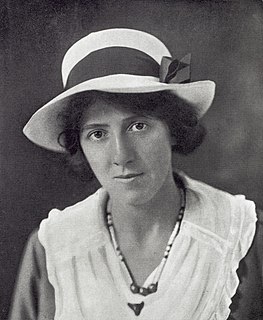A Quote by Mark Fisher
What needs to be kept in mind is both that capitalism is a hyper-abstract impersonal structure and that it would be nothing without our co-operation.
Related Quotes
Capitalism offers nothing but frustrations and rebuffs to those who wish - because of claimed superiority of intelligence, birth, credentials, or ideals - to get without giving, to take without risking, to profit without sacrifice, to be exalted without humbling themselves to understand others and meet their needs.
To walk after the spirit a believer must inhibit his mind from revolving endlessly. If it turns too long around one topic, worries or grieves too much over matters, and ponders too intensively to know God's will, it may become unbearable and hamper its normal operation. The mind needs to be kept in a steady and secure state.
When needs and means become abstract in quality, abstraction is also a character of the reciprocal relation of individuals to oneanother. This abstract character, universality, is the character of being recognized and is the moment which makes concrete, i.e. social, the isolated and abstract needs and their ways and means of satisfaction.
Life and death are nothing but the mind. Years, months, days, and hours are nothing but the mind. Dreams, illusions, and mirages are nothing but the mind. The bubbles of water and the flames of fire are nothing but the mind. The flowers of the spring and the moon of the autumn are nothing but the mind. Confusions and dangers are nothing but the mind.
Despite the miracles of capitalism, it doesn't do well in popularity polls. One of the reasons is that capitalism is always evaluated against the non-existent, non-realizable utopias of socialism or communism. Any earthly system, when compared to a Utopia, will pale in comparison. But for the ordinary person, capitalism, with all of its warts, is superior to any system yet devised to deal with our everyday needs and desires.
Modern capitalism needs men who cooperate smoothly and in large numbers; who want to consume more and more; and whose tastes are standardized and can be easily influenced and anticipated. It needs men who feel free and independent, not subject to any authority or principle or conscience-- yet willing to be commanded, to do what is expected of them, to fit into the social machine without friction; who can be guided without force, led without leaders, prompted without aim-- except the one to make good, to be on the move, to function, to go ahead.
I do think some games are works of art, although their medium is visual rather than verbal. Both games and novels allow the reader/player to become a protagonist in the theater of the imagination. Both build worlds. In my opinion, the big difference between game and novel is in narrative structure. Communal role-playing games are open-plan without an end. A novel - at least the kind I write - has a closed structure with a beginning, a middle, and an end. I like that closed structure, and I feel I can say more with it.






































